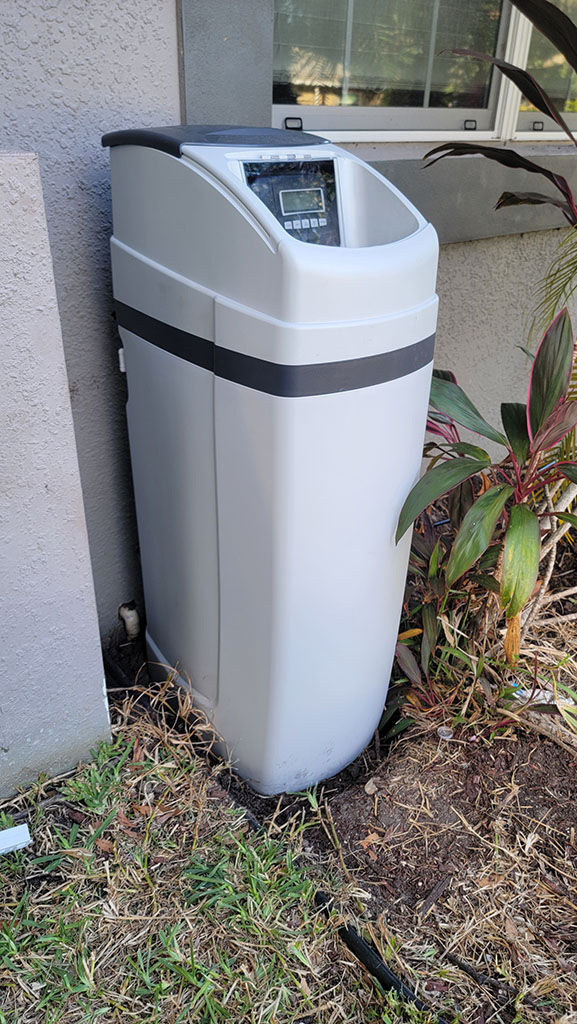What Does Grain Mean in Water Softeners?
- Eli G

- Jan 14, 2024
- 4 min read
Updated: Sep 16, 2025

Dealing with hard water issues in Tampa Bay, Florida, and contemplating a water softener? You might have come across the term "grain" in water softener discussions. This article, brought to you by Aqua-Wise Water Solutions, explains what "grain" means in water softeners, guiding you in understanding the required capacity.
Explaining "Grain" in Water Softeners
Understanding what "grain" means in water softeners is like deciphering a simple code. Picture it as a unit indicating your water's hardness and a water softener's capability. It measures the amount of calcium and magnesium, the troublemakers causing water hardness, in a single gallon. So, the more grains, the tougher the water challenge. It's like a scale that helps you choose the right water softener for a smoother, more efficient softening process.
Determining Water Softener Capacity
When choosing a water softener in Tampa Bay, it's crucial to match its capacity to your household's water usage and hardness level. Follow these steps, with guidance from Aqua-Wise Water Solutions, to determine the right capacity:
Assess Daily Water Usage
To figure out the right water softener for your home, start by estimating how much water your household uses daily. Think about everyday activities like showers, laundry, and dishwashing. Check your water bill or use water flow meters to gather this data. Understanding your household's daily water consumption is crucial before selecting a water softener. It acts as a foundation for determining the necessary grain capacity, ensuring that the chosen softener meets the unique needs of your home.
Check Water Hardness
Find out the hardness of your water by testing it, typically measured in grains per gallon (GPG) or parts per million (PPM). This crucial information is often available through your local water supplier or can be obtained using water testing kits. Knowing the hardness level is essential for sizing your water softener accurately. You can contact your local water utility provider or conduct a water quality test to determine the specific hardness level of your water supply. Once you have this data, factor in peak demand periods to ensure your chosen water softener can effectively handle the most challenging water conditions in your home.
Calculate Daily Grain Removal
To determine the grain capacity needed for your water softener, you can follow a simple calculation, with Aqua-Wise Water Solutions' expertise. Multiply your daily water usage by the water hardness level measured in grains per gallon (GPG). This calculation provides the daily grain removal requirement for an effective water softener. For instance, if your household consumes 200 gallons of water each day, and the water hardness is 10 GPG, you would need a water softener with a capacity of at least 2,000 grains (200 gallons x 10 GPG) to efficiently remove hardness minerals before regeneration is necessary.
Efficiency Matters When Choosing the Right Water Softener
Consider the efficiency rating, presented as a percentage, with insights from Aqua-Wise Water Solutions, while choosing a water softener. Not all softeners operate at 100% efficiency, and some may consume more water during the regeneration process. It's vital to factor in this efficiency to ensure that the chosen system can effectively manage the calculated daily grain removal. Manufacturers often provide information about their models' efficiency, offering valuable insights to make informed decisions while sizing your water softener.
Understanding your household's water usage patterns is key to avoiding under-sizing or over-sizing your water softener, as emphasized by Aqua-Wise Water Solutions. Take into account peak water usage times, such as when everyone is taking showers or running appliances like dishwashers and washing machines simultaneously. If you frequently have guests, make sure your water softener can handle the increased demand during these periods. This thoughtful consideration ensures optimal performance and longevity of your water softening system.
A Guide for Homeowners in Choosing the Right Water Softener
Water softeners come in various types, each with its unique regeneration system. Time-based systems follow a set schedule for regeneration, irrespective of water usage. Metered systems regenerate based on actual water consumption, while demand-initiated systems regenerate only when necessary, making them the most efficient choice. Optimal performance and reduced water and salt consumption can be achieved by selecting the type that aligns with your household's needs.
Seek Aqua-Wise Water Solutions' advice for accurate sizing recommendations, ensuring an effective and efficient water-softening solution.
If the abundance of information feels overwhelming, consider seeking guidance from Aqua-Wise Water Solutions, a seasoned water treatment specialist. These experts can assist you by conducting tests and analyzing your water quality. They provide accurate sizing recommendations and suggest suitable water softener models tailored to your specific requirements. This professional advice ensures you make informed decisions, leading to an effective and efficient water-softening solution for your home. Visit www.aqua-wise.com for free water tests and expert solutions.
Conclusion
Deciphering the significance of "grain" in water softeners is crucial when selecting the right system for your Tampa Bay home. By assessing daily water usage, testing water hardness, and considering system efficiency, you can confidently choose a water softener that effectively tackles hard water issues. Invest wisely to enjoy the benefits of softened water, prolong the life of your appliances, and enhance your overall water experience. Explore additional services like Reverse Osmosis Systems and Whole House Water Filters offered by Aqua-Wise Water Solutions to further optimize your water treatment solutions.


Comments